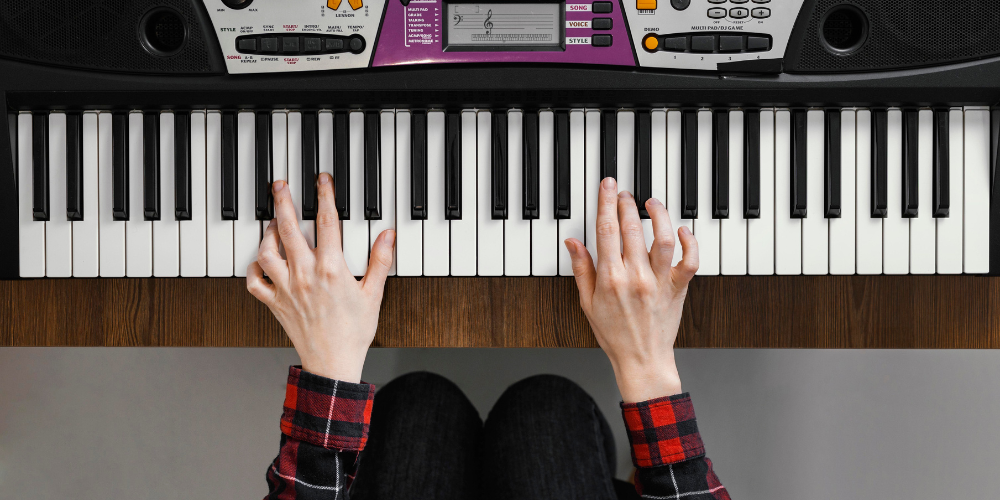When you're just starting your musical journey or considering a new addition to your home studio, choosing between a digital piano and a keyboard piano can be surprisingly tricky. Both instruments offer portable, modern alternatives to the traditional acoustic piano, but they serve different needs in terms of feel, functionality, and budget.
So how do you know which one suits your goals? Whether you’re a complete beginner, a gigging musician, or a parent looking for the right instrument for your child, this guide will help you decide confidently.
If you’re shopping in Malaysia, Guitarlicious offers a growing selection of beginner-friendly digital pianos, keyboards, and essential accessories. Let’s break down the key differences between these instruments, and which one is the best match for you.
What’s the Difference Between a Digital Piano and a Keyboard?
At first glance, a digital piano and a keyboard piano may look similar, especially to beginners. But there are crucial differences in how they are built and what they’re designed to do.
Digital Piano:
-
Designed to replicate the sound and feel of an acoustic piano
-
Typically features 88 weighted keys with hammer action
-
Built-in speakers and realistic piano tones
-
Prioritises authentic playing experience over versatility
Keyboard Piano:
-
Prioritises portability and versatility
-
May come with 61 to 76 keys, often unweighted or semi-weighted
-
Features a wide variety of sounds, rhythms, backing tracks, and effects
-
Designed for fun, experimentation, and electronic performance
Think of the digital piano as the perfect substitute for an upright piano, while the keyboard piano is more of a portable music workstation. If you're comparing physical features and build types, browse the Shop by Brands section to see the differences first-hand.
Which Instrument is Better for Beginners?
Choosing the right starting instrument depends on your goals: are you aiming to learn classical piano properly, or are you experimenting with musical creativity?
Choose a Digital Piano if:
-
You want to learn proper piano technique
-
You’re preparing for music exams (ABRSM, Trinity, etc.)
-
You’re used to the touch of acoustic pianos
-
You need realistic key weight and sustained sound quality
The weighted keys on a digital piano build finger strength and dexterity. They prepare you for future transitions to acoustic pianos or graded music tests.
Choose a Keyboard Piano if:
-
You want a portable, fun, and affordable instrument
-
You’re more interested in pop, electronic music, or songwriting
-
You're a hobbyist who enjoys playing around with multiple voices and rhythms
-
You want to create loops, beats, and experiment with onboard features
Keyboards are fantastic for children, casual learners, and those focused on creativity over technical precision. Some even come with light-up keys and guided lessons, which can boost early engagement.
For more beginner tips and reviews, check out the advice on the Guitarlicious blog, especially when comparing entry-level models.
What Features Should You Prioritise When Choosing?
Once you've decided on a type, look at the features that impact your practice, recording, and enjoyment. Here’s what to consider:
1. Key Action
-
Digital pianos use graded hammer action, which closely mimics acoustic feel
-
Keyboards often use spring-loaded or semi-weighted keys, which are lighter and easier to press
2. Number of Keys
-
Digital pianos usually have 88 full-sized keys
-
Keyboards range from 49 to 76 keys, suitable for pop or synth work
-
Beginners learning classical piano should ideally start with at least 61 keys
3. Built-in Sounds and Functions
-
Digital pianos focus on realistic grand piano, strings, and organ sounds
-
Keyboards include hundreds of voices, effects, and rhythm accompaniments
-
Some models offer USB recording, metronomes, drum pads, and MIDI compatibility
4. Speakers and Output Options
-
Built-in speakers are standard on both
-
Look for headphone jacks for silent practice
-
USB/MIDI outputs are useful for connecting to a DAW (Digital Audio Workstation) or laptop
After deciding on features, don’t forget essentials like a stand, pedal, and protective case. You can build your kit using the accessories collection at Guitarlicious.
Which Option Is More Suitable for Long-Term Use?
If you're investing for the long haul, especially for learning piano or preparing for exams, digital pianos tend to be more future-proof.
Why Digital Pianos Are Ideal Long-Term:
-
Encourage correct hand position and finger strength
-
Allow for greater expression with dynamic touch
-
Suitable for home concerts, advanced practice, or lessons
-
Higher-end models often come with graded hammer action, ivory key feel, and realistic sound sampling
Why Keyboards Can Still Grow With You:
-
Great for evolving into music production or composition
-
Their lightweight design makes them easy to move from room to room
-
Some advanced models have assignable controls, loopers, and DAW compatibility
-
You can start with a simple model and upgrade modules or MIDI controllers later on
If you’re planning to grow with your instrument, register through the Guitarlicious login portal to manage wishlists, upgrades, or warranty claims over time.
FAQs
1. Can I learn classical music on a keyboard piano?
Yes, but it’s not ideal. Most keyboards don’t offer weighted keys or dynamic response, which are crucial for classical phrasing and technique.
2. Is a digital piano too large for small rooms?
Not necessarily. Many modern digital pianos have slim profiles and foldable stands, making them apartment-friendly. Look for models that blend into your living space aesthetically.
3. Are keyboard pianos good for children?
Absolutely. Keyboards are lighter, easier to use, and offer fun features like learning lights, preloaded songs, and interactive games to keep children engaged.
4. What’s better for music production: digital piano or keyboard?
A keyboard piano is better for production thanks to USB/MIDI connectivity, multiple voices, and DAW integration. It acts as both an instrument and a MIDI controller.
5. Where can I buy beginner-friendly digital pianos or keyboards in Malaysia?
You can find trusted brands and helpful recommendations at Guitarlicious, along with accessories, bundles, and local delivery options.
Final Note: Choosing Between Digital Piano and Keyboard
Making the right choice between a digital piano and a keyboard piano ultimately depends on your musical goals, space, and how you envision using the instrument. A digital piano offers the closest experience to playing a real acoustic piano, making it the better option for those serious about developing traditional piano technique, preparing for exams, or seeking expressive, dynamic playing. On the other hand, a keyboard piano provides versatility, portability, and playful features that appeal to casual learners, young beginners, and aspiring music producers who want a more flexible instrument for experimentation and creativity.
Whether you're leaning toward the weighted feel of a digital piano or the multifaceted functionality of a keyboard, what matters most is choosing an instrument that keeps you motivated and excited to play. For expert advice, trusted brands, and beginner bundles tailored for Malaysian musicians, explore the selection at Guitarlicious. You can browse brand comparisons in the Shop by Brands section, discover helpful tips on the blog, and complete your starter setup with accessories that fit your needs.
Whichever path you choose, your first step begins with a sound decision, one that brings music, joy, and progress into your everyday life.

